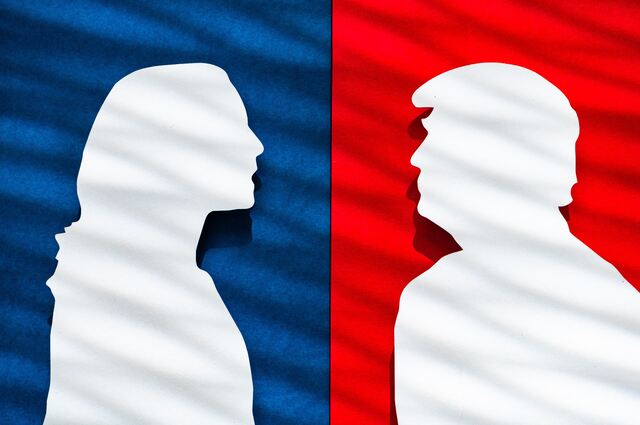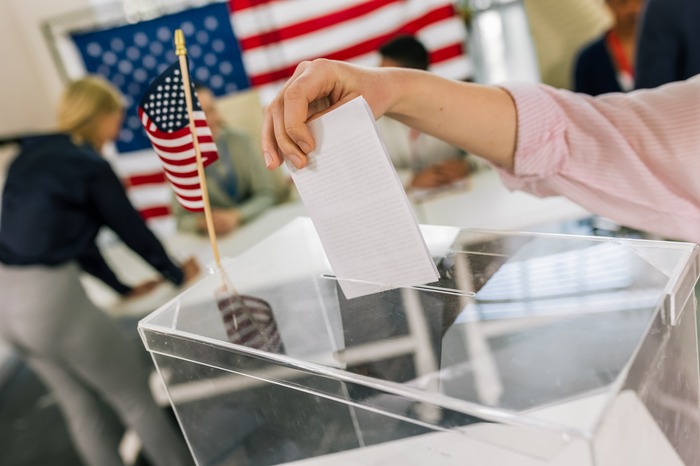This November, America decides her next president. Whoever stands victorious from the US presidential election will hold sway over the White House for the next four years. Now all eyes are on the United States come November 5th, but many look uncertainly. Few would admit it, but there’s plenty of confusion surrounding the US presidential election. How does it work, the timid onlookers ask? Meanwhile the rest of us should ask—does it work?
US election results have far-reaching impacts beyond the “land of the free”
You’ve likely heard that old adage of the American president being the world’s most powerful person. Whether or not it’s true, the mystique allows the US election results to capture attention planet-wide. The elected Democrat or Republican’s policies will impact life at home and abroad. And after an eventful debate back in early September, this year’s sort-of-rematch between Trump and Harris is already lighting up switchboards.
“I probably took a bullet to the head because of the things they say about me. They talk about democracy, I’m a threat to democracy. They’re the threat to democracy,” Donald Trump on the 60th US presidential election

Despite the “all powerful” aura of the president, their individual whims don’t hold much weight. A president may pass some laws on their own, but the bulk of their job involves working with Congress to pass legislation. A president alone can’t declare war, for example. Nor can they spend federal money, or choose Supreme Court Justices. The constitution is top dog. And the Supreme Court is the constitution institution-ified.
Still, the importance of America’s elective decision can’t be underestimated. Whoever wins will have plenty of freedom to dictate foreign policy. This is salient when considering the US claims 40% of total military spending in the world and has armed forces in some 170 nations. Then consider that the US contributes to 15.9% of all manufacturing output and leads globally in Research & Development—a tasty 10% more than China. US soft power is unparallelled. And those casting a ballot in the US presidential election will know that fact all too well.
How the US presidential election works: the system deciding who will live at the White House
So, how will the election work on November 5th? There’s good and bad news; it’ll work just like it has for the last 250 years. Voters will ballot for state electors. These electors then vote for a presidential candidate. Since electors campaign exclusively for one candidate, voters know where their ballot’s going. 270 of 538 electors tips the majority. That’s what a presidential candidate needs to win.
Whether this is good or bad news depends on your perspective. It’s not the individual voters who decide the next president. It’s the Electoral College. And the winner-take-all system flattens out the nuances of the popular vote; for instance, a presidential candidate (Hillary Clinton) could win more ballots from the general public but still lose. Voters from densely populated states technically have less individual sway than voters from sparsely populated states. The pie of power, so to speak, is dished out in varied portions.

“Under the winner-take-all system, U.S. citizens have been denied their constitutional right to an equal vote in presidential elections. This is a clear violation of the principle of one person, one vote,” explains David Boies
It’s easy to criticize. Meanwhile, mobilizing 333 million people to vote is not. Changing the system would mean rewriting the Constitution, which is a complex matter. It’s better, then, to focus on simpler improvements. Automatic voter registration, for example, or the possibility of registering to vote on Election Day. November 5th could be made a public holiday to free up work schedules. School curriculums could be honed to clarify who can vote in US elections and demystify the process. For now, though, the sure-fire way to make a difference is the same as ever: to stand up and be counted.
Counting the US election polls for the nation’s 250-year anniversary: a high-stakes undertaking for modern history
Either Harris or Trump will be in office for the nation’s 250-year birthday. It’s a mouthwatering proposition for anyone wanting to make history. Adding to the emotion will be Trump’s quest for vindication after his previous tenure. Harris, on the other hand, wants to be the first female president to live at the White House.
The excitement will be as high as ever for this term’s US election. Polls will be counted, nails will be chewed. And then we’ll do it all over again in four years’ time. Names are written in history, but that’s the only permanence to the gig. What does last is the will of the American people.
“With this election, our nation has a precious, fleeting opportunity to move past the bitterness, cynicism and divisive battles of the past. A chance to chart a New Way Forward. Not as members of any one party or faction. But as Americans,” says Kamala Harris

America will make its choice. After 250 years of independence and a steadfast title as a global superpower, the likelihood is the choice will be the right one. Each candidate will simply have to prove that’s them.
Offering you the choice to study abroad in Europe: IE University welcomes American students
IE University prides itself on a network of students from over 170 different countries. This year alone, we’re educating some 3,800 Americans who have taken the brave decision to study abroad in Europe. If you value the diverse and entrepreneurial mindset that sets us apart, we want to hear from you.
Take a look at various testimonials of American students at IE University and get a firsthand account of life at a world-leading institution. You can also explore the rest of the blog for more information on our various master’s programs.
Interested? We look forward to hearing from you.
Ready for the next step in your professional journey?
Browse our world leading master’s programs on IE University’s official website.

Benjamin is the editor of Uncover IE. His writing is featured in the LAMDA Verse and Prose Anthology Vol. 19, The Primer and Moonflake Press. Benjamin provided translation for “FalseStuff: La Muerte de las Musas”, winner of Best Theatre Show at the Max Awards 2024.
Benjamin was shortlisted for the Bristol Old Vic Open Sessions 2016 and the Alpine Fellowship Writing Prize 2023.






